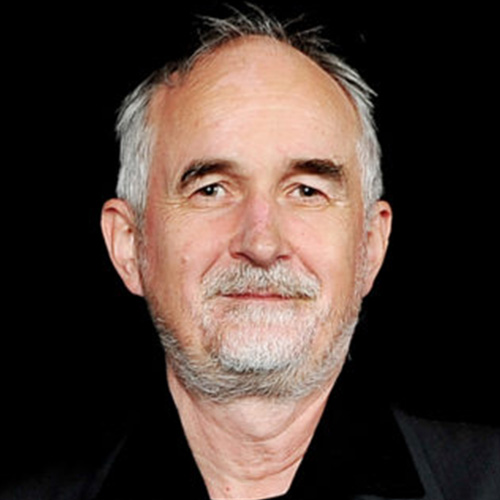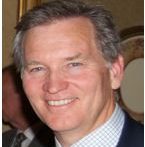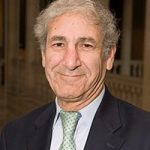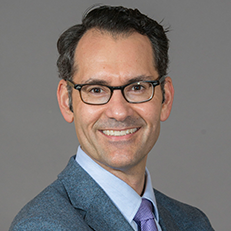Affiliated with the UBC Department of Psychiatry, the UBC Institute of Mental Health (UBC IMH) was established in 2006 with a mandate to provide leadership in creating, applying and disseminating knowledge to improve diagnosis and treatment of mental illnesses at all ages.
UBC IMH is headed by a Director and supported by the UBC IMH Executive Committee, the UBC IMH Advisory Board, and the UBC IMH Scientific Advisory Committee.
Core Academic Faculty
| Name & Contact Info | UBC Faculty Roles | Research Areas | |
|---|---|---|---|
 | Pouya Azar pouya.azar@vch.ca David Strangway Building 5950 University Blvd Vancouver, BC V6T 2B9 | Assistant Professor, Dept of Psychiatry, Concurrent Disorders | Clinical and translational research focused on developing innovative opioid agonist treatment protocols, withdrawal management strategies, medical devices, primary prevention programs and digital health tools to enhance patient outcomes. |
 | Sophia Frangou sophia.frangou@ubc.ca Djavad Mowafaghian Centre for Brain Health 2215 Wesbrook Mall Vancouver, BC V6T 1Z3 | Professor & President’s Excellence Chair in Brain Health, Dept of Psychiatry, Division of Neuroscience & Translational Psychiatry Associate Head, Research & International Affairs, Dept of Psychiatry | Brain mechanisms underpinning mood disorders and psychotic disorders; biosignature of genetic and environmental risk factors for mental disorders; brain mechanisms that mitigate risk and enhance resilience in populations at risk for mental disorders |
 | David Kealy david.kealy@ubc.ca David Strangway Building 5950 University Blvd Vancouver, BC V6T 2B9 | Associate Professor, Dept of Psychiatry, Division of Adult Psychiatry & Mental Health Services | Psychotherapy focused on factors that influence therapy process and outcome, particularly in the treatment of individuals with personality disorders, multiple clinical or social difficulties, and histories of traumatic experience. |
 | Kamyar Keramatian kamyar.keramatian@ubc.ca Mood Disorders Centre 2255 Wesbrook Mall Vancouver, BC V6T 2A1 | Assistant Professor & Canada Research Chair Tier 2 in Early Intervention in Psychosis/Bipolar Disorder, Dept of Psychiatry | Mood disorders; psychosis and bipolar disorder |
 | William Panenka will.panenka@ubc.ca Translational Research Building 938 West 28th Ave. Vancouver, BC V5Z 4H4 | Associate Professor, Dept of Psychiatry, Division of Adult Psychiatry & Mental Health Services Associate Program Director, Research Track, Dept of Psychiatry, Postgraduate Residency Program | Neuropsychiatry; neurology; traumatic brain injury (TBI) and concussion; development of biomarkers in concussion; mental health, addictions, and TBI in homeless and precariously housed populations |
 | Tamara Vanderwal tamara.vanderwal@ubc.ca Translational Research Building 938 West 28th Ave. Vancouver, BC V5Z 4H4 | Assistant Professor, Dept of Psychiatry, Division of Child & Adolescent Psychiatry | Child psychiatric disorders; naturalistic conditions and naturalistic viewing in study of neural and behavioural responses; movie paradigms for use in neuroscience |
 | Daniel Vigo daniel.vigo@ubc.ca Detwiller Pavilion 2255 Wesbrook Mall Vancouver, BC V6T 2B8 | Associate Professor, Dept of Psychiatry, Division of Neuroscience & Translational Psychiatry Associate Professor, School of Population & Public Health | Public health, population health and health systems; global mental health; psychiatric epidemiology; mental health and addictions; substance use disorders; health data science and e-mental health |
 | Fidel Vila-Rodriguez fidel.vilarodriguez@ubc.ca Detwiller Pavilion 2255 Wesbrook Mall Vancouver, BC V6T 2B8 | Associate Professor, Dept of Psychiatry, Division of Neuroscience & Translational Psychiatry | Non-invasive neurostimulation therapies (NINETs) for severe and refractory forms of depression and psychosis; TMS-fMRI; tDCS-fMRI; novel therapeutic interventions within NINETs |
Leadership & Committees
UBC IMH Director
Dr. Lakshmi N. Yatham MBBS, DPM, FRCPC, MBA (Exec)
Department Head and Professor, Department of Psychiatry, Faculty of Medicine, UBC
Regional Head of Psychiatry and Regional Program Medical Director, Vancouver Coastal Health & Providence Healthcare

In his role as Director, UBC Institute of Mental Health, Dr. Yatham provides leadership in teaching and research, and in promoting and improving patient care and clinical service delivery, working in partnership with affiliated Health Authorities across B.C.
Dr. Yatham, Professor in the Department of Psychiatry, is also the Regional Head of Psychiatry and Regional Program Medical Director for Mental Health and Addictions at Vancouver Coastal Health and Providence Health Care. He has held leadership positions for national and international professional organizations including President of the International Society for Bipolar Disorders, and is currently the President for the World Federation of Societies of Biological Psychiatry (WFSBP) and the Editor in Chief of the Canadian Journal of Psychiatry. Dr. Yatham’s major areas of research interest include neurobiology and treatment of bipolar disorder and major depression.
UBC IMH Executive Committee
The IMH Executive Committee is advisory to the Director of the Institute, providing advice and support to the Director on operational aspects of all activities of the Institute. Additionally, the Executive Committee provides advice and guidance to the Director on matters relating to development and execution of vision and strategic priorities, as well as fund raising activities.
Responsibilities
The specific responsibilities of the IMH Executive Committee are:
- To participate in the development of a strategic plan and support the Director in identifying a clear vision and strategic priorities for the Institute
- To advise and assist the Director on operationalizing the implementation of the IMH’s strategic priorities
- To advise the Director on decisions related to operational aspects of the IMH
- To assist in enhancing the UBC Institute of Mental Health’s public profile
- To assist with fundraising activities benefiting and sustaining the UBC Institute of Mental Health
- To facilitate links between the Institute and external communities including family and patient advocacy groups, appropriate government bodies, mental health professionals, provincial, national and international partners
- To bring external viewpoints and suggest approaches regarding the challenges and opportunities facing the UBC Institute of Mental Health.
Committee Members
Chair, Dr. Lakshmi N. Yatham

Dr. Lakshmi Yatham is a professor and Department Head in the Department of Psychiatry, Director of the UBC Institute of Mental Health, and Regional Head of Psychiatry and Regional Program Medical Director for Mental Health and Addictions at Vancouver Coastal Health and Providence Health Care. He has an Executive MBA from the Sauder School of Business and a wealth of leadership experience in academic, healthcare and professional organizations. He has held leadership positions such as the President for the International Society for Bipolar Disorders, and is now the President of the World Federation of Societies of Biological Psychiatry.
Dr. Yatham’s major areas of research interest include neurobiology and treatment of bipolar disorder. His research has contributed to several advances in understanding and treatment of bipolar disorder including disease progression, importance of early intervention in arresting disease progression, and development of new treatments. He has published about 300 peer reviewed papers and is one of the few most highly cited researchers in psychiatry/psychology in the world. He is on the editorial boards of a number of international journals and a Scientific Advisory Board member of the International Bipolar Foundation and Harvard’s Dauten Family Center for Bipolar Studies. Dr. Yatham has been the lead for publication of the CANMAT bipolar guidelines which are widely cited and adopted for use by clinicians from around the world. He has received numerous national and international awards for his contributions to research and leadership in the field of bipolar disorders.
Dr. Sophia Frangou

Dr. Sophia Frangou is a Professor and the Associate Head of Research and International Affairs in the UBC Department of Psychiatry, and is the President’s Excellence Chair in Brain Health at the Djavad Mowafaghian Centre for Brain Health, where she leads the Translational Neuroimaging and Clinical Neuroscience Program in Mental Health. Dr. Frangou has authored more than 250 scientific papers that have attracted over 16,000 citations, and she is the recipient of the Colvin Prize for Outstanding Achievement in Mood Disorders Research.
Dr. Trevor Hurwitz

Dr. Hurwitz completed his medical degree in Pretoria, South Africa followed by an internship in Johannesburg and a senior housemanship in Cape Town. He continued his studies in London, England and obtained certification in Internal Medicine. He completed a residency in Psychiatry at the University of British Columbia in 1980 and a residency in Neurology at Boston University in 1982.
Currently Dr. Hurwitz is a Clinical Professor in the Department of Psychiatry at the University of British Columbia. He is the Director of the B.C. Neuropsychiatry Program and Chief-of-Service of West-1 at UBC Hospital, Vancouver. Dr. Hurwitz has a joint appointment in the Department of Medicine, Division of Neurology and practices as a clinical neurologist in addition to his primary commitment to inpatient and outpatient Neuropsychiatry. Dr. Hurwitz’s work is mostly devoted to clinical practice, teaching and the promotion of the discipline of Neuropsychiatry with some research interests in the field of Neuropsychiatry.
Dr. Michael Krausz

Dr. Michael Krausz is originally from Hamburg, Germany, where he was trained at the University Medical Center Hamburg-Eppendorf. Following his training, he worked in three different clinical and research positions in general psychiatry.
In the mid 1990s, he became a founding director of the Centre of Interdisciplinary Addiction Research at the University of Hamburg and retained directorship at the centre until 2004. As a founding director, he was also responsible for the German Heroin Trial, the European Cocaine Project, and several other notable addiction-related trials. He was also Editor-In-Chief of two well-established scientific journals; Suchttherapie and European Addiction Research respectively. He has also published more than 300 scientific papers to date. Dr. Krausz is also a founding member of the International Society of Addiction Medicine (ISAM) and is currently serving on the boards of the Section of Addiction and the Section of Public Policy for the World Psychiatric Association.
Michael relocated permanently to the Vancouver area in 2007 and became a professor of psychiatry and the University of British Columbia (UBC) as well as the LEEF Chair in Addiction Research at the Institute of Mental Health at UBC.
Dr. Raymond Lam

Dr. Raymond W. Lam is Professor and BC Leadership Chair in Depression Research in the UBC Department of Psychiatry, and Co-Director of the Mood Disorders Centre at the Djavad Mowafaghian Centre for Brain Health. His research encompasses clinical and neurobiological factors in seasonal, treatment-resistant and workplace depression, clinical trials and guidelines, biomarkers, digital technologies, and global mental health. Dr. Lam is also a lead investigator in the Canadian Biomarker Integration Network in Depression (CAN-BIND), Executive Chair for the APEC Digital Hub for Mental Health, and past Executive Chair for the Canadian Network for Mood and Anxiety Treatments (CANMAT). Dr. Lam has published over 450 papers in peer-reviewed journals and is recognized as a Highly Cited Researcher by Clarivates Web of Science.
Dr. Lynn Raymond

Dr. Lynn Raymond is the Director of the Djavad Mowafaghian Centre for Brain Health. She is also a Professor in the Department of Psychiatry, the Louise A. Brown Chair in Neuroscience and Clinic Director of the Centre for Huntington Disease.
Dr. Raymond is an internationally renowned neuroscientist and neurologist, and her work bridges foundational science and clinical research. She has more than 170 publications, and her work has been cited more than 11,000 times. She has devoted her career to better understanding the specific roles of altered neuronal circuits and amino acid neurotransmitter receptors in Huntington disease, with the aim of developing disease-modifying therapy. Her work is funded by the Canadian Institutes of Health Research, the John Evans Leadership Fund, and she has held funding from a variety of not-for-profit organizations including the Cure Huntington’s Disease Initiative and Huntington Society of Canada.
Dr. Roberto Sassi

Dr. Roberto Sassi is a Child and Adolescent Psychiatrist, Associate Professor (Partner), Head of the Division of Child and Adolescent Psychiatry at the UBC Department of Psychiatry, and Psychiatrist-in-Chief at BC Children’s and Women’s Hospitals.
Dr. Sassi has a PhD degree from the University of Sao Paulo, with a postdoctoral fellowship in neuroimaging at the Western Psychiatric Institute and Clinic in Pittsburgh, where he worked on magnetic resonance imaging investigations on bipolar disorder. Prior to joining UBC, Dr. Sassi held faculty appointments at the University of Miami Miller School of Medicine in Miami, FL and at McMaster University, in Hamilton, ON.
UBC IMH Advisory Board
The IMH Advisory Board serves to provide advice and support to the Director of the Institute on matters relating to vision, strategic direction and fund raising activities.
Responsibilities
The specific responsibilities of the IMH Advisory Board are:
- To advise on the UBC Institute of Mental Health’s mission, vision, goals and strategic initiatives, and be a sounding board for these initiatives
- To assist with fundraising activities benefiting and sustaining the UBC Institute of Mental Health
- To assist in enhancing the UBC Institute of Mental Health’s public profile
- To facilitate links between the Institute and external communities including family and patient advocacy groups, appropriate government bodies, mental health professionals, provincial, national and international partners
- To bring external viewpoints and suggest approaches regarding the challenges and opportunities facing the UBC Institute of Mental Health.
Board Members
Chair, Leigh Sauder

As well as founding her Travel Business at the age of 23, Leigh has been actively involved with her family’s Wood Manufacturing and Distribution Business, serving as a Board member of Sauder Industries Ltd. since 1999.
While raising her four children, Leigh became passionate about Social Justice Issues. It became clear to Leigh that her own experience of being raised on the West Side of Vancouver differed greatly from environments of less privilege. Her interest extended beyond the comfort of her community when in 2006 Leigh journeyed to Kenya with her oldest daughter to live and work alongside the Kenyan people living in abject poverty. This work sparked a long-term involvement with ACCESS (the African Canadian Continuing Education Society), and in 2007 Leigh accepted a position on the Board where she has remained very involved for the past many years. Helping Kenyans lift themselves out of poverty through education is the mission and focus of ACCES, as well as building capacity for the Kenyan Alumni to create and run a Social Enterprise.
Leigh is a Founding Member of CDL-West at UBC. CDL is a seed-stage program for massively scalable science-based companies. Leigh’s ongoing commitment to the local community includes her recent appointment as a Board Member of the Institute for Mental Health at UBC.
Mr. Wong is a two-time winner of the American Marketing Association BC Chapter Marketer of the Year Award.
IMH Director, Dr. Lakshmi N. Yatham

Dr. Yatham is a professor and Department Head in the Department of Psychiatry, Director of the UBC Institute of Mental Health, and Regional Head of Psychiatry and Regional Program Medical Director for Mental Health and Addictions at Vancouver Coastal Health and Providence Health Care. He has an Executive MBA from the Sauder School of Business and a wealth of leadership experience in academic, healthcare and professional organizations. He has held leadership positions such as the President for the International Society for Bipolar Disorders, and is now the President of the World Federation of Societies of Biological Psychiatry (WFSBP).
Dr. Yatham’s major areas of research interest include neurobiology and treatment of bipolar disorder. His research has contributed to several advances in understanding and treatment of bipolar disorder including disease progression, importance of early intervention in arresting disease progression, and development of new treatments. He has published about 300 peer reviewed papers and is one of the few most highly cited researchers in psychiatry/psychology in the world. He is on the editorial boards of a number of international journals and a Scientific Advisory Board member of the International Bipolar Foundation and Harvard’s Dauten Family Center for Bipolar Studies. Dr. Yatham has been the lead for publication of the CANMAT bipolar guidelines which are widely cited and adopted for use by clinicians from around the world. He has received numerous national and international awards for his contributions to research and leadership in the field of bipolar disorders.
Dean of the Faculty of Medicine, Dr. Dermot Kelleher

Dr. Kelleher joined UBC in 2015 as Dean of the Faculty of Medicine. Prior to his appointment at UBC, Dr. Kelleher served as Vice-President Health and Dean of the Faculty of Medicine at Imperial College London, where he also held a concurrent appointment as Dean of the Lee Kong Chian Medical School in Singapore until 2014. Dr. Kelleher has also served as Head of the School of Medicine and Vice Provost for Medical Affairs at Trinity College, Dublin.
Dr. Kelleher graduated from medicine from Trinity College Dublin in 1978, going on to specialize in gastroenterology. Author of 300 publications and 14 patents, Dr. Kelleher’s research examines the immune response to many of the leading causes of gastrointestinal infectious disease worldwide. Over the years he has received many prestigious awards including a Fogarty Scholarship at the University of California San Diego, Wellcome Senior Fellow in Clinical Science, and most recently the Conway Medal from the Royal Academy of Medicine in Ireland.
With a strong commitment to innovation and collaboration, Dr. Kelleher has worked to found several companies supporting both translational developments in biomedical science and fostering collaboration in biomedical research in both Dublin and London. He also served as President of the Federation of European Academies of Medicine until moving to British Columbia.
President and Vice-Chancellor of UBC, Dr. Benoit-Antoine Bacon

Dr. Bacon was named the 17th President and Vice-Chancellor of The University of British Columbia in 2023. Prior to his appointment at UBC, Dr. Bacon was the President and Vice-Chancellor of Carleton University in Ottawa, a position he held since 2018. Dr. Bacon previously served as Provost and Vice-Principal (Academic) at Queen’s University and as Provost and Vice-President (Academic Affairs) at Concordia University in his hometown of Montreal. At Carleton University, Dr. Bacon has been recognized for many accomplishments including significant increases in student success, research funding and fundraising, as well as marked progress in Indigenous initiatives, wellness, sustainability, and equity, diversity and inclusion. As a result, the university has experienced a sharp rise in its national profile and reputation.
He holds a PhD in neuropsychology from the University of Montreal and completed a post-doctoral fellowship at the University of Glasgow in Scotland. Dr. Bacon’s research is in the field of neurophysiological and cognitive bases of visual and multisensory perception. Sharing his own lived experience, he also advocates nationally for open conversations about mental health and substance use.
Members at Large
Glenn Wong

Glenn Wong is founder of the consulting company, Catalyst Solutions Ltd. that focuses on corporate strategy and governance. He received his B.Comm from the University of British Columbia and is a certified corporate director.
Glenn has served as President/CEO of several companies including Electronic Arts Canada, Rogers Cable TV BC and BC Hot House – a growers’ cooperative. Previous to that, Glenn worked for Procter & Gamble and Nabob Foods, rising to Vice President of Marketing.
In addition to LIFT Philanthropy, Glenn has extensive community involvement which includes serving as a board member of the Canadian Media Fund and Coast Capital Savings Credit Union. His past service includes being Vice Chair of the Vancouver Police Board as well as serving on the boards of the BC Cancer Foundation, EComm 911, S.U.C.C.E.S.S. (immigrant social services), ICBC and UBC’s Sauder School of Business Faculty Advisory Board.
Darren Entwistle

Darren Entwistle joined TELUS in 2000 as President and CEO, becoming the longest-serving CEO amongst incumbent telecommunication companies worldwide. Under Darren’s leadership, TELUS has evolved from a regional telephone company serving Western Canada into a national data and wireless leader.
Darren has a Bachelor of Economics (Honours) degree from Concordia University, an MBA in Finance from McGill University and a diploma in Network Engineering from the University of Toronto. He has received honorary Doctorates of Law from McGill University, Concordia University, the University of Alberta and the University of Victoria. Darren also holds an honorary Bachelor in Business Administration from the Northern Alberta Institute of Technology and is an Honorary Fellow of The Royal Conservatory in Toronto.
Darren currently serves on the boards of the Gairdner Foundation and the Canadian Board Diversity Council, and is a founding member of the 30% Club Canada. Darren’s past directorships include George Weston Ltd., the Business Council of Canada, TD Bank Financial Group, McGill University Board of Governors and Bell Cablemedia Plc in the United Kingdom.
Darren received the Queen Elizabeth II Golden Jubilee Medal (2003) and the Queen Elizabeth II Diamond Jubilee Medal (2012) in recognition as a Canadian business leader who has made exemplary contributions to the community and to Canada as a whole.
Sunny Marshall

Sunny is one of ten children born and raised in East Vancouver in an area called “The Project”, a housing development reserved for WWII veterans.
After finishing high school she worked at various jobs including a dozen years in the investment industry. She and her husband, Stewart, foster parented a number of children and adopted two sons, Adam and Charlie. Sunny has always had a soft spot for the welfare of the disadvantaged and a particular interest in mental health. She is delighted to be a part of this exciting project because of its focus on research and the causes of mental illness, which will hopefully one day lead to more effective treatment.
Stewart Marshall

Stewart is a retired executive from the financial services industry, where he worked for 30 years. He holds a Bachelor of Commerce degree in Finance from the University of British Columbia, 1982. In 1987 he earned his Chartered Financial Analyst designation.
From 1990 to 2013 Stewart was a partner of Phillips, Hager & North Investment Management (PH&N), where he specialized in investment analysis and portfolio management. His clients included corporate, union and university pension & endowment plans and private clients. Stewart was very involved in recruiting and building the PH&N team. He was a regular presenter to small institutional committees and at large public forums. From 1982 to 1990 Stewart worked for Dominion Securities.
Stewart is on the board of Golftec Canada, as well as being a long-time director of the Terminal City Club. He is a former director of Phillips, Hager & North, a Past President & Director of The Vancouver Society of Financial Analysts and past Director of Canadian Counsel of Financial Analysts.
Stewart and his wife, Sunny, have two sons and live in West Vancouver.
Stewart is a member of Seymour Golf & Country Club, Evergreen Squash Club and Terminal City Club. He spends his a lot if time golfing, skiing, cycling, kitesurfing and playing squash.
Anne – Marie Kains
Mental Health Experts
Yasmin Jetha

As Vice President, Community Services, Yasmin Jetha plays a pivotal role in the planning and transformative changes necessary to achieve VCH’s vision for a new, integrated model of primary and community care. She oversees six Regional Program Leadership Teams – Primary Care; Home Health; End of Life; Mental Health & Substance Use; Residential Care; and Medicine.
Yasmin brings a wealth of leadership experience in clinical operations and the implementation of complex system changes to the position. Along with a Masters in both Social Work and Health Administration from the University of British Columbia, Yasmin brings more than two decades of experience in senior health care roles with VCH, Fraser Health and the Provincial Health Services Authority. Most recently, she was the Regional Program Director of Palliative/End of Life Care and the Director of Home, Community and Palliative Care within Vancouver Community. Prior to this, she was the VCH Regional Executive Director for Mental Health and Substance Use as well as the Director of Mental Health and Addictions for the VCH’s Richmond community of care.
She was nominated in 2015 for a BC Premier’s Award for her work on a multi-system response to addressing the needs of individuals dealing with mental health and substance use issues, and is actively involved in bringing external stakeholders together to collaborate on transforming the way health care services are provided in a community setting. Yasmin was also recognized by the VCH Board and Senior Executive Team in 2011 with a People First Award for “Leadership by example with vision, dynamic, innovation and client-centered care”. She joined the VCH Senior Executive Team in September 2017.
Dr. Anson Koo

Dr. Anson Koo is the Program Medical Director, Regional Department Head, and Head of Academic Psychiatry for the Mental Health and Substance Use Program in the Fraser Health Authority (FHA). He was previously the Psychiatry Head of Department at the Royal Columbian Hospital, and the Division Head for Adult Acute and Community Psychiatry Programs in FHA. He is a Clinical Associate Professor in the UBC Department of Psychiatry. His clinical practice is in Adult Inpatient Psychiatry at the Royal Columbian Hospital.
Dr. Koo is very involved in undergraduate and postgraduate medical education, both as an educator and administrator. He has overseen the establishment of a psychiatry residency program based in Fraser Health, and is a member of the UBC CaRMS resident selection committee. As Academic Psychiatry Lead for FHA, he has developed a regional network of teaching sites and academic faculty, and expanded psychiatric medical education across the Fraser Health Authority. He serves on the UBC psychiatry undergraduate education committee as a Discipline Specific Site Leader. In his regional medical administrative roles, Dr. Koo has provided strategic and operational medical leadership during a period of significant service expansion within Fraser Health in both the mental health and addiction medicine programs.
His particular areas of interest include medical education, health resource equity, leadership development, and innovation in service integration across the acute and community continuum of care.
Dr. Caroline Gosselin

Caroline Gosselin is Clinical Professor and Geriatric Division member of the UBC Department of Psychiatry and is in active geriatric psychiatry practice at the Vancouver General Hospital. She is a Founding Member of the RCPSC Geriatric Psychiatry subspecialty and was an examiner for the RCPSC Psychiatry Examination Board for a decade and Chief Examiner from 2014 to 2018. She is a co-founder of the Canadian ECT Survey (CANECTS/ECANEC I), Co-Chair of the Canadian ECT Standards (CANECTS/ECANEC II) and is an award-winning educator.
UBC IMH Scientific Advisory Committee
The mandate of the IMH Scientific Advisory Committee is to provide peer review and advice for grants and awards funded by IMH.
Committee Members
Co-Chair Dr. Robert Post

Throughout his career, including 35 years at the NIMH, and 20 of those as Chief of the Biological Psychiatry Branch, Dr. Post has focused on bettering the understanding and treatment of refractory unipolar and bipolar illness. He founded the International Stanley Foundation Bipolar Network (now the Bipolar Collaborative Network). Currently, he is in private practice and attempting to address childhood-onset bipolar illness.
Dr. Post helped pioneer the use of the anticonvulsant carbamazepine as treatment for lithium-resistant patients with bipolar disorder. Prior to leaving the NIMH, he and his group were exploring nonconvulsive brain stimulation with repetitive transcranial magnetic stimulation (rTMS) for treatment of unipolar and bipolar depression. Animal studies have enabled him to re-conceptualize affective illness recurrence and evolution at the level of cyclic alterations in gene expression. These views emphasize the importance of early, long-term treatment of mood disorders to prevent progressively increasing vulnerability to episode recurrence, cycle acceleration and treatment resistance.
Co-Chair Dr. Ayal Schaffer

Ayal Schaffer (MD, FRCPC) is Head of the Mood and Anxiety Disorders Program, and Deputy Psychiatrist-in-Chief, at Sunnybrook Health Sciences Centre, Toronto, Canada. He is an Associate Professor in the Department of Psychiatry, University of Toronto, Vice-President Education for the International Society for Bipolar Disorders, and on the Board of the Canadian Network for Mood and Anxiety Treatments (CANMAT).
Dr. Schaffer’s research interests involve the management of bipolar disorder andtreatment-resistant depression, understanding suicide risk and prevention, and examiningpopulation-health trends in the treatment of mental illness. Dr. Schaffer has been aprincipal or co-investigator of studies funded by the Ontario Mental Health Foundation,Canadian Institute of Health Research, National Institute of Mental Health (U.S.),Ontario Ministry of Health and Long-Term Care, PSI Foundation, American Foundationfor Suicide Prevention, the Stanley Medical Research Institute, and others.
Dr. Schaffer co-authored the CANMAT / ISBD Guidelines for the Management ofBipolar Disorder as well as co-leading the CANMAT Task Force on Comorbidity inMood Disorders. He recently chaired the International Society for Bipolar DisordersTask Force on Suicide. Dr. Schaffer has an outpatient and inpatient practice atSunnybrook, where he is also chair of the Department of Psychiatry QualityImprovement Committee. He is actively involved in teaching at the undergraduate,postgraduate, and continuing educations levels.
Dr. Stephanie Ameis

Dr. Stephanie Ameis is the inaugural O’Brien Scholar within the Child and Youth Mental Health Collaborative at CAMH and Sick Kids and a clinician-scientist within the Campbell Family Mental Health Research Institute at CAMH and the Program in Brain and Mental Health at The Hospital for Sick Children in Toronto She is Assistant Professor in the Department of Psychiatry, Faculty of Medicine at the University of Toronto.
Dr. Ameis’ clinical work focuses on providing evidence-based assessment and care for children, youth and emerging adults with autism spectrum disorders. The main goals of her research are to: (i) use brain imaging to learn how variation in brain circuit structure and function relates to behaviour as a means to develop new targets for treatment and (ii) use brain imaging to understand how existing and novel (i.e., medications, behavioural therapies, brain stimulation) interventions/treatments work.
Dr. Ana Cristina Andreazza

Dr. Andreazza is an Associate Professor in the Departments of Pharmacology & Toxicology and Psychiatry and holds a holding Tier II Canada Research Chair in Molecular Pharmacology of Mood Disorders. She is cross-appointed as a collaborator Scientist at the Centre for Addiction and Mental Health. Dr. Andreazza is an Advisor for the Dauten Family Center for Bipolar Treatment Innovation at Massachusetts General Hospital, a consultant for the Bipolar Biobank at Mayo Clinic and as a member of the Board of Directors from the International Society of Bipolar Disorder.
Dr. Andreazza received PhD in Biochemistry from the Federal University of Rio Grande do Sul, RS, Brazil. She has published over 140 research articles with an h-index factor of 45. She is the recipient of several prestigious research awards, including the 2018 Canada Top 40 Under 40 and has received funding from the Brain and Behavior Foundation (NARSAD), the Canadian Institutes for Health Research, the Ontario Mental Health Foundation and the Ontario Ministry of Research and Innovation. Her research focuses on the understanding of the role of redox modulations and mitochondrial dysfunction in mental illness, especially in mood disorders.
Dr. Andreazza research focuses on the understanding of the role of mitochondrial function in mental illness, especially in mood disorders. As neurons depend on mitochondrial function, dysfunctional mitochondrial during neurodevelopment is expected to impact neurotransmission with potentially crucial implications for mood disorders. Currently, Dr. Andreazza is evaluating the impact of mitochondrial dysfunction on neurotransmission using 3D brain organoids generated from induced pluripotent stem cells from patients with bipolar disorder and/or mitochondrial disease.
Dr. Paul Arnold

Dr. Arnold, MD, PhD is a the inaugural Director of the Mathison Centre for Mental Health & Education and the Alberta Innovates Translational Health Chair in Child and Youth Mental Health at the University of Calgary. He is an Professor with the Departments of Psychiatry, Cumming School of Medicine, University of Calgary and a child and adolescent psychiatrist practicing at Alberta Children’s Hospital. His research focuses on how genetic and environmental risk factors interact to influence the development of child onset neuropsychiatric disorders.
Dr. Glen Baker

Glen Baker is currently Distinguished University Professor Emeritus in the Department of Psychiatry at the University of Alberta. He did his undergraduate degree in Pharmacy, an MSc in medicinal chemistry and a PhD in Biological Psychiatry at the University of Saskatchewan. This was followed by postdoctoral research (with a fellowship from the MRC of Canada) at the MRC Neuropharmacology Unit at the University of Birmingham, England before joining the Department of Psychiatry at the University of Alberta in 1977. He is a former Chair of the Department of Psychiatry and a founding member of the Neurochemical Research Unit at that university, a past president of the Canadian College of Neuropsychopharmacology (CCNP), a former Tier I Canada Research Chair and a former Associate Vice-President of Research for the University of Alberta.
Dr. Baker is a Fellow of the Canadian Academy of Health Sciences and was a University of Alberta Distinguished University Professor. He was Series Co-Editor for the book series Neuromethods for 20 years and has served on the editorial boards of several journals. He has published over 375 peer-reviewed papers, 425 abstracts and numerous editorials, book chapters, invited review articles and abstracts and was co-holder of 3 patents. He has been well funded for many years by various national and provincial granting agencies and has had numerous research collaborators locally, nationally and internationally.
His main research interests are mechanisms of action and metabolism of psychiatric drugs used in treatment of mood and anxiety disorders and schizophrenia; biomarkers in psychiatric and neurological disorders; analytical neurochemistry; and drug development, with a focus on neuroprotection. Dr Baker has supervised or cosupervised over 40 graduate students and 23 postdoctoral fellows as well as numerous summer students and psychiatry residents who have done research projects with him, and he has served on supervisory or examination committees for over 160 graduate students other than his own. He has served on many grant panels and advisory boards as well as organizing committees for several national and international conferences in neurochemistry and neuropsychopharmacology.
His awards include the College Medal and Innovations in Neuropsychopharmacology Research Award of the CCNP, a McCalla Research Professorship, a Killam Professorship, a University of Alberta Killam Research Award for Excellence in Mentoring, a REACH Team Award from Capital Health and an Alumni Award of Achievement from the University of Saskatchewan. Dr. Baker was one of the alumni to receive the 100 Alumni of Influence Award during the University of Saskatchewan Centenary (2007) and in 2014 was the recipient of a Centennial Alumni of Influence Award from the College of Pharmacy and Nutrition at the University of Saskatchewan. In 2015 he received the Medal of Honor of the Alberta Medical Association and in 2018 the Department of Psychiatry Resident Research Award for supervision of residents.
Dr. Benjamin I. Goldstein

Dr. Goldstein is a child-adolescent psychiatrist and Professor of Psychiatry, Pharmacology, and Psychological Clinical Science at the University of Toronto, as well as Adjunct Professor of Psychiatry at the University of Pittsburgh. He is the Director of the Centre for Youth Bipolar Disorder and Director of Research in the Department of Psychiatry at Sunnybrook Health Sciences Centre, and a Senior Scientist at Sunnybrook Research Institute. Dr. Goldstein’s efforts focus on teenagers with, or at familial risk for, bipolar disorder. His team seeks to identify clinically relevant biomarkers, and innovative prevention and treatment strategies that focus simultaneously on physical and mental health.
Dr. Goldstein has authored over 150 scientific articles, and has received international awards for his research. His research is currently funded by grants from Brain Canada, CIHR, the Heart and Stroke Foundation, and the Ontario Ministry of Research, Innovation and Science. An active educator, Dr. Goldstein serves as Director of the Clinician Scientist Program in the University of Toronto’s Department of Psychiatry.
Dr. Paul Kurdyak

Dr. Kurdyak completed his medical degree, psychiatry residency training, and PhD in clinical epidemiology at the University of Toronto. He is a staff psychiatrist at the Centre for Addiction and Mental Health, and is the Director of the Health Outcomes and Performance Evaluation (HOPE) Research Unit within the Social and Epidemiological Research Program. Dr. Kurdyak is also the Lead of the Mental Health and Addictions Research Program at the Institute for Clinical Evaluative Science (ICES). Dr. Kurdyak provides oversight on the evaluation of complex mental health interventions and provincial strategies through his role as Director of Health Outcomes for the Medical Psychiatry Alliance and as a consultant to the Ministry of Health and Long-Term care and Health Quality Ontario.
Dr. Michael Meaney

Dr Meaney is a leading researcher and laboratory director at the Douglas Mental Health University Institute, an Adjunct Senior Investigator at the Singapore Institute for Clinical Sciences, a James McGill Professor in the departments of Psychiatry and Neurology & Neurosurgery at McGill University, and the Director of the Program for the Study of Behaviour, Genes & Environment at McGill University.
Dr Meaney’s laboratory focuses on epigenetics, the biological basis by which environmental factors produce an enduring effect on genomic structures and function, and the resulting phenotype variations, including mental illnesses and learning disabilities. These studies focus on epigenetic modifications to the genome that regulate gene activity, altering or switching them ‘on and off’. This work involves both basic science and translational research models, ranging from studies of molecular mechanisms to brain-development and -function in humans. Dr Meaney is also the director of the Maternal Adversity, Vulnerability & Neurodevelopment (MAVAN) project, a Montreal-based longitudinal study of paediatric epigenetics, and a primary investigator in Singapore’s largest birth cohort study, Growing Up in Singapore Towards healthy Outcomes (GUSTO).
Dr. Andrew A. Nierenberg

Andrew A. Nierenberg, M.D. graduated from the Albert Einstein College of Medicine of Yeshiva University, Bronx, NY. After completing his residency in psychiatry at New York University/Bellevue Hospital, he studied clinical epidemiology at Yale University as a Robert Wood Johnson Clinical Scholar. Dr. Nierenberg then joined the faculty at Harvard Medical School, first at McLean Hospital in Belmont, Massachusetts and then at Massachusetts General Hospital (MGH), where he holds his current positions. He is also Honorary Professor in the School of Medicine, Faculty of Health at Deakin University, Geelong Australia.
Dr. Nierenberg has published over 475 papers and has been listed in The Best Doctors in America for the treatment of mood and anxiety disorders in every edition since 1994. In 2000, he was awarded the Gerald L. Klerman Young Investigator Award and in 2014 the Gerald L. Klerman Senior Investigator Award by the Depression Bipolar Support Alliance. In 2013, Dr. Nierenberg was awarded the prestigious Brain and Behavior Research Foundation Colvin Prize for outstanding achievement in mood disorders research. In 2014, he was awarded the Mentorship Award for Exceptional Mentorship in the Research Arena at MGH. In 2014, 2015, 2016, and 2017, he was listed among the World’s Most Influential Scientific Minds by Clarivate Analytics in recognition of ranking among the top 1% of researchers for most cited papers in psychiatry worldwide with over 25,000 citations and an h-factor of 78.
Dr. Nierenberg’s primary interest is innovative treatments for bipolar disorder. He lectures extensively, both nationally and internationally, teaches, supervises, maintains an active clinical practice, consults to industry, and conducts clinical trials funded by federal, foundation, industry, and philanthropic sources.. Dr. Nierenberg is the deputy editor of Depression and Anxiety and editor of Psychiatric Annals. He is a member of the editorial boards of over 15 journals including the Journal of Clinical Psychiatry, Journal of Clinical Psychopharmacology, Journal of Affective Disorders, Australian New Zealand Journal of Psychiatry, and Bipolar Disorders and serves as a peer reviewer for over 35 psychiatric journals.
Dr. Lena K. Palaniyappan

Dr. Lena Palaniyappan is an Associate Professor at the Departments of Psychiatry and Medical Biophysics at the Western University, and Director of the Prevention and Early Intervention in Psychoses Programme (PEPP), London, Ontario. He completed his MD at Stanley Medical College, Chennai, India followed by PhD in Translational Neuroimaging at the University of Nottingham, UK. His research team Neuroimaging in Mental Illnesses is based at the Robarts Research Institute, Western University.
Dr. Mark Sinyor

Dr. Mark Sinyor is a Psychiatrist at Sunnybrook Health Sciences Centre, an Assistant Professor in the Department of Psychiatry, Faculty of Medicine at the University of Toronto and an Associate Scientist at the Hurvitz Brain Sciences Research Program, Sunnybrook Research Institute. His clinical focus is on treatment of mood and anxiety disorders and he coordinates Sunnybrook’s Mood Disorders Clinic. He is the founder of PROGRESS (the Program of Research and Education to Stop Suicide) at Sunnybrook and sits on the board of directors of the Canadian Association for Suicide Prevention. His main research focus is on suicide prevention and mental health literacy. He has more than 40 peer-reviewed publications in high impact factor journals including the British Medical Journal, American Journal of Psychiatry, World Psychiatry and the Canadian Medical Association Journal. His research has been featured in Time Magazine, the Los Angeles Times, BusinessWeek, CBC’s the National and Radio One, CTV and Global News. In 2017, he won the Canadian Psychiatric Association’s Early Career Achievement in Psychiatry Award.
Dr. Philip Tibbo

Dr. Tibbo received his B.Sc. (Hons) from Mount Alison University in Sackville, NB, and his MD from Memorial University of Newfoundland. He completed his residency in psychiatry at the University of Alberta, and following this joined the staff at the University of Alberta Hospital as a clinician and researcher. He was instrumental in the development of and co-directed both the Bebensee Schizophrenia Research Unit and the Edmonton Early Psychosis Intervention Clinic.
In 2008 Dr. Tibbo was named the first Dr. Paul Janssen Chair in Psychotic Disorders, an endowed research chair, at Dalhousie University in Halifax NS. He is a Professor in the Department of Psychiatry with a cross-appointment in Psychology at Dalhousie University and an Adjunct Professor in Department of Psychiatry at the University of Alberta. He is also Director of the Nova Scotia Early Psychosis Program (NSEPP) and co-director of the Nova Scotia Psychosis Research Unit (NSPRU).
Dr. Tibbo’s publications are primarily in the area of schizophrenia, and his current foci of study include individuals at the early phase of, and individuals at risk for, a psychotic illness. Dr. Tibbo’s areas of research include application of in vivo brain neuroimaging techniques to study psychosis as well as research interests in co-morbidities in schizophrenia, psychosis genetics, addictions and psychosis, stigma and burden, pathways to care, education, and non-pharmacological treatment options. He is President of the Canadian Consortium for Early Intervention in Psychosis (CCEIP), helping to advance early intervention care at the national level. He is funded by local and national peer reviewed funding agencies and well published in leading journals. Dr Tibbo is a recipient (2015) of the Michael Smith Award from the Schizophrenia Society of Canada for research and leadership in schizophrenia, recipient of the Canadian Alliance on Mental Illness and Mental Health’s Champion of Mental Health Research/Clinician award in 2017 and most recently the recipient of the 2018 Regional Prix d’excellence – Specialist of the Year – Region 5 by the Royal College of Physicians and Surgeons of Canada.
Dr. Simone Vigod

Dr. Simone Vigod is an Associate Professor in the Department of Psychiatry at the University of Toronto, and Lead of the Reproductive Life Stages (RLS) Program at Women’s College Hospital. Her background includes an Honours BSc in Psychology from McGill University (1999), an MD from the University of Toronto, UofT (2003) and psychiatric residency at UofT (FRCPC, 2009). To build her research program, she undertook a Masters of Science in Clinical Epidemiology from the UofT Institute for Health Policy, Management and Evaluation (IHPME) and is now a faculty member therein.
Dr. Vigod’s research aims to address disparities in health and health care for individuals with psychiatric disorders, with a specific focus on women across the lifespan and on equity in access to treatment for diverse populations. She is an Adjunct Scientist at ICES in Toronto, Ontario where she conducts her population-based epidemiological research focused on the health of women with mental illness and their children. In 2018, she obtained the Shirley A. Brown Memorial Chair in Women’s Mental Health Research at Women’s College Research Institute at Women’s College Hospital where she runs the clinical intervention part of her research program that focuses on novel health system interventions to improve access to and uptake of care for women with mental illness. Her research discoveries have been highlighted at the public level, with significant coverage from international and national media. Dr. Vigod also has a significant presence related to advocacy for quality of care at the provincial and national level that will guide implementation of interventions to improve the quality of mental health care delivery across the country.
Dr. Tak Pan Wong

Dr. Tak Pan Wong is an Associate Professor in the Department of Psychiatry at McGill University and a Researcher at Douglas Mental Health University Institute. He obtained his PhD in Pharmacology in 2001 from McGill University, followed by postdoctoral training at UBC. Since 2006, he has established his research laboratory at Douglas Institute to investigate hippocampal mechanisms that underlie behavioral changes in animal models for psychiatric disorders. He has obtained the Young Investigator award from NARSAD and career awards from FRSQ (Junior I,II and senior).
Objectives and Partnerships
The IMH endowment was established to support leading edge research in child and adolescent psychiatry, psychotherapy, and geriatric psychiatry. As more resources become available, the breadth of activities has grown. As an integral part of UBC’s Department of Psychiatry, the IMH is comprised of basic and clinical researchers in the UBC Faculties of Medicine, Science, Nursing, Education, Law and Arts. Their activities include:
- Building on recent advances in the fields of neuroscience, genetics, pathology, brain imaging, psychology and epidemiology
- Translating these advances into clinically effective preventive and treatment strategies including early intervention, psychotherapy, genetic counseling and medications
- Ensuring, through training and education, their application in everyday clinical practice throughout British Columbia
Through leadership in creating capacity, advancing knowledge, and translating and disseminating knowledge in order to improve the mental health of individuals and those affected with mental health conditions across the life spectrum, the UBC IMH serves as a model for health education, mental health research and promotion of evidence based practice in BC, Canada and rest of the world, benefiting people today and into the future.
As well, with the establishment of the IMH Marshall Scholars and Fellows Program, the IMH is investing in the research training of promising young scholars who will contribute to advancing understanding and treatment of psychiatric disorders.
The UBC IMH is a key partner with the UBC Department of Psychiatry, Djavad Mowafaghian Center for Brain Health, BC Mental Health and Addictions Research Institute, School of Population and Public Health, and the BC Ministry of Health, and aims to collaborate actively with other centers and Institutes within UBC and across the Universities in Canada and internationally.